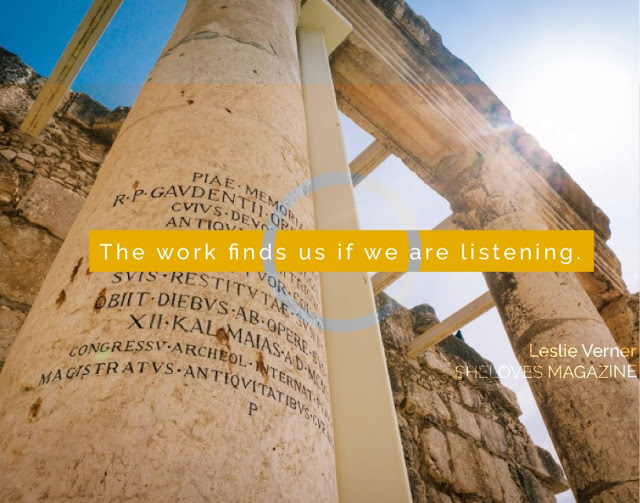
Statistics tell us that 81 percent of people want to write a book in their lifetime. Since I wrote my own book, many friends in real life have confessed their secret desire to write a book of their own. Other online friends in writing groups ask questions about how to format their book proposals, query agents, or build their platform.
I often get asked the how. “How did this come about? How did you know what to write? How did you actually write it?” But before addressing the how of writing a book, individuals would benefit from musing over the question of why?
Why do you want to write a book–and why now?
When I wrote my book, I was 39 years old and had a one, three, and five-year-old at home. None of my kids were in school. Although my husband takes full responsibility for praying that book into existence, I still wrestle with my choice to write a book during an already full-to-the-brim time of life. Did it pour life into me and my family, or siphon off joy, peace, and family harmony? Why did I need to write it then?
Over the past few years as a blogger, book launch team member, and book reviewer, I’ve read many non-fiction books written by various authors with different publishers. As a writer, editor, and writing teacher, I have two thoughts:
1. Many books would benefit from better editing. While I’ve read some fabulous books, many that I read were too long, too wordy, or not structured well. Publishers are busy and editors have too much on their plate. Editors don’t have time to struggle back and forth with an author to get it just right. If you are writing a book, I recommend setting aside a portion of your advance to hire your own writing coach. The classics became classics because they had outstanding editors (see The Artful Edit).
2. Many people write their books too soon. We are eager to birth our stories into the world, but many of them are born prematurely. We harvest the gardens of our lives long before they have come to full bloom. Patience should be the writer’s greatest virtue. Our stories usually benefit from a longer time in the ground, on the stalk, or growing on the vine.
Last week my kids and I watched the 2016 animated film Leap about an orphan who becomes a ballerina in Paris (love me a good dancing movie). Throughout the film, her mentor asks her, “Why do you dance?” She doesn’t know, doesn’t have a good answer. Until the end. It is only when she internalizes her “why” that her dancing demonstrates the passion, grace, and conviction required to take her from average to extraordinary.
Some writers claim that writing is their calling. I wrestle with the concept of “calling” because I believe we over-spiritualize and amass undue weight to “Our Call.”
Instead of thinking of writing as my calling, I think of it as my compulsion. Writing is this thing I can’t not do. It’s this thing that helps me illuminate what I ultimately believe about myself, God, and the world. It attunes me to wonder in the world and invites mystery into my ordinary days. Writing–in my journal or for an audience–works out the kinks in my psyche and soul in a way just pondering or talking about those things can’t quite do. Writing, for better or for worse, is an addiction. A compulsion. A need.
I recently finished reading the compelling memoir When Breath Becomes Air by Paul Kalanithi, a neurosurgeon diagnosed with lung cancer who died before completing the manuscript. When he finally resigned from his work at the hospital, he poured all the rest of his creative energy his last year of life into “finally writing that book.” In his final chapter he writes, “Words have a longevity I do not.” We write to immortalize ourselves.
But writing a book costs us. For me, the price of writing this book was:
- Less physical time with my kids (which I was fine with, actually–“I have a book to write” feels like a noble excuse for temporary escape. Much better than “I have a blog post to write or novel to read.”)
- Fractured and distracted time with my kids and my husband. (Nothing like a surprise invasion of imposter syndrome, comparison, or “But I can’t do this” lament to sideline foreplay.)
- Much money spent on babysitters, new headshots, postage for mailing books, writing at a nearby Abbey, paying my own book coach and publicist, writing software, purchasing books for research, paying for my own advance reader copies (ARCs) to distribute to influencers, paying for ads on Instagram, and for my launch party. (My husband calls all this “investment in my career”… most days I agree.)
- The mental/emotional toll of All The Voices. The result for me was often insomnia, sometimes tears, and the occasional freak out.
- Loss of friendships. Every spare moment was spent writing my book. While I used to spend naptimes calling long-distance friends, I now needed to spend that time researching or writing my book. While I used to have time to chat with moms at pre-school pickup-up, I needed to rush home to get to work on a book about making time for people and building community (the irony!).
Before you write that book, count the cost. What’s it worth to you? Could your stories wait?
One friend says she makes decisions based on the criteria: “Does this give life to me and my family or steal life from me and my family?” But is it fair to use the “life-giving/life-stealing criteria” for evaluating the creation of art? Or is the transformation of my readers, their churches, and their neighborhoods worth the temporary strain on my marriage, friendships, and family? (This is where believing in a “Higher Calling” would come in handy. Higher Callings demand personal sacrifice for the greater good of humanity. Do I believe my writing is that far-reaching?)
In Walking on Water, Madeleine L’Engle says that “if the work comes to the artist and says, ‘Here I am, serve me,’ then the job of the artist, great or small, is to serve.”
I don’t write because it brings me or my family greater happiness (though I confess I’ve had moments of exhilaration). I don’t write because it brings me greater peace, joy, or helps me sleep better at night (it doesn’t). And I don’t write because I want to be famous, rich, or accomplished. I write because I must. Not writing is more painful, awkward, and–dare I say–foolish. Not writing feels like disobedience. Not writing would be leaving behind the topo map, compass, and binoculars I’ve been gifted to instead bushwhack through the forest blind.
Until we know why we write, our faulty reasons for writing and wanting to publish a book will lead us astray. (To be fair, sometimes we write to pay the bills … this is not exactly what I’m talking about here. There are usually about three hundred better ways to put groceries in your fridge and gas in your car than becoming a writer.)
Before you pursue that agent, that book proposal, that book deal, I urge you to wrestle with your why. And after that, ask yourself some questions:
- Why is now the right time?
- Would my stories benefit from a bit more marinating? A bit more time curing and being cultivated in secret? Has my story reached maturation?
- Must I write?
As writers, we can google “how” to write a book. We can take classes, read books, join online writing communities, and listen to writers on podcasts. But every writer must work out their own “why.”
Why do you write? And are you meant to write that book now? If your answer is yes, then go in peace and serve the work. It may well be the hardest thing you ever do. (Just don’t say no one warned you.) And don’t be shocked if when it’s turned in, printed, and launching out into the world, instead of relaxing in a kayak on a serene lake or tickling your children under an apple tree, you feel The Tug. And you know. You may just need to do it all over again.
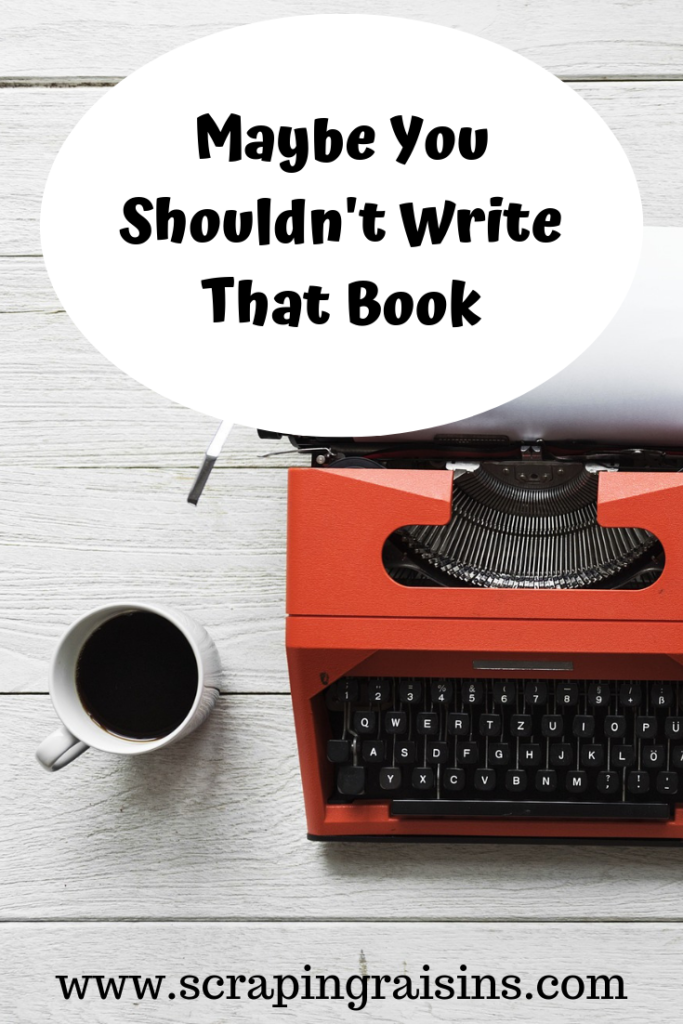
*This post contains Amazon affiliate links

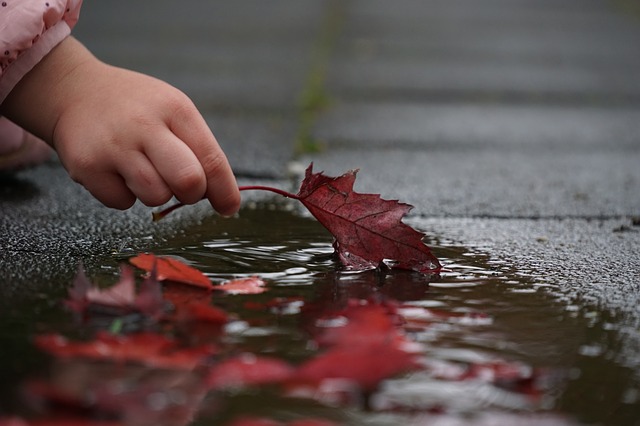
 Sheli Massie is a story keeper, seeker of justice, healing and hope in a broken world. She believes in longer tables, unlocked doors and living a barefoot life. She and her husband live outside of Chicago with their five children and one grandlove. You can find her over on Instagram @shelimassie_, Redbud Writers,
Sheli Massie is a story keeper, seeker of justice, healing and hope in a broken world. She believes in longer tables, unlocked doors and living a barefoot life. She and her husband live outside of Chicago with their five children and one grandlove. You can find her over on Instagram @shelimassie_, Redbud Writers, 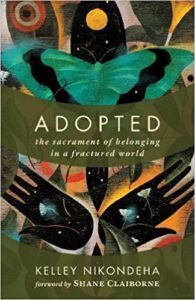 For our last week of posts on foster care, adoption and children, I’m giving away a free copy of Kelley’s book,
For our last week of posts on foster care, adoption and children, I’m giving away a free copy of Kelley’s book, 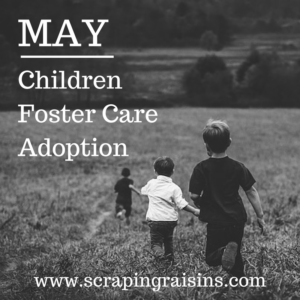


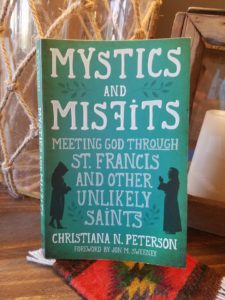 If you want to win a copy of
If you want to win a copy of 














 Our theme for April is “Books and Writing,” and I hope to share my favorite books, podcasts and resources for new writers. Be sure to follow me on social media and sign up for my newsletter below so you can be alerted of new posts. Please get in touch at scrapingraisins (dot) gmail (dot) com if you are interested in guest posting on this topic!
Our theme for April is “Books and Writing,” and I hope to share my favorite books, podcasts and resources for new writers. Be sure to follow me on social media and sign up for my newsletter below so you can be alerted of new posts. Please get in touch at scrapingraisins (dot) gmail (dot) com if you are interested in guest posting on this topic!






